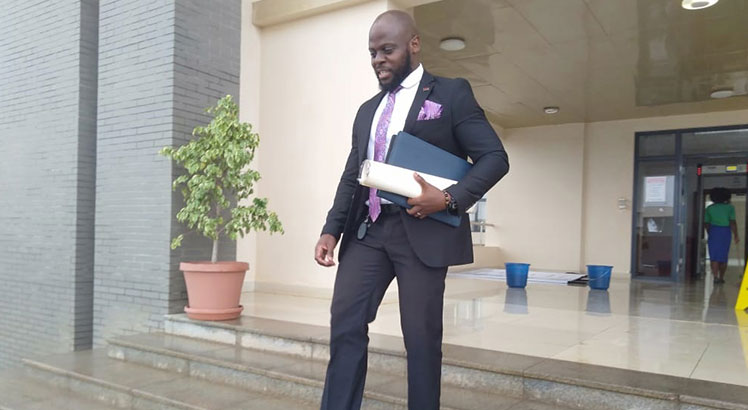AG attributes bad economy to poorly applied laws
Attorney General (AG) Thabo Chakaka-Nyirenda has said poorly designed, framed institutions and poorly-implemented laws depress Malawi’s chance for economic vitality.
During a public lecture organised by the law faculty of the Catholic University of Malawi (Cunima) on Wednesday in Chiradzulu District the AG said United Nations Development Programme (UNDP) maintains that human development consists of elements that directly enhance human abilities.

“These [human abilities] include a long and healthy life, knowledge, decent standard of living and those that create conditions for human development such as participation in political and community life, environmental sustainability, human security and rights, and gender equality,” he said.
In the lecture titled ‘The interface between law, governance and development in Malawi’, Chakaka-Nyirenda said the World Bank’s Comprehensive Development Framework (CDF) and the Sustainable Development Goals (SDGs) have adopted this broad view of development.
Thus, he said, the concept of development covers non-economic values believed to enhance human life such as political participation, right to property, gender equality and access to a clean and safe environment and the rule of law, as the key elements of development.
“To effectively achieve development goals, a country has to set priorities among the basic elements of development. For example, the East Asian countries prioritised economic development and focused on social development later.
“Note that what may be socially correct may not be economically correct or legally correct and vice versa. The tools used to achieve economic development such as the rule of law, nevertheless, would invariably achieve social development,” the AG argued.
The impact of law, he said, cannot be assessed separately from relevant institutions. The enactment of anti-corruption laws, anti-financial crimes laws or procurement regulatory laws, for example, would be ineffective if the essential institutions that enforce them, such as an effective prosecutorial service or an independent judiciary, were absent or if there is regulatory capture.
The SDGs aspire to significantly reduce illicit financial and arms flows, strengthen the recovery and return of stolen assets and combat all forms of organised crime by 2030.
According to a study jointly organised by the African Union Commission and the UN Economic Commission, Malawi experiences an annual loss of about 10 percent of its GDP to trade-based money-laundering.
Between 2010 and 2017, he said, Malawi lost $980 million to improper transfer pricing and trade mispricing.
Cunima law lecturer Gracian Zibelu Banda commended the AG for what he called “a well-researched paper, rich in economic history of Malawi”.
During comments and question time, one of the students asked what government was doing to fight corruption and why it appears to be worsening, and the AG said there are a number of interventions to slow down corruption. He further stated that corruption worsened in 1996 after privatisation of State institutions.
“Corruption flourished after privatization because State intervention stopped. One government institution could not corrupt another for a service,” he said.





